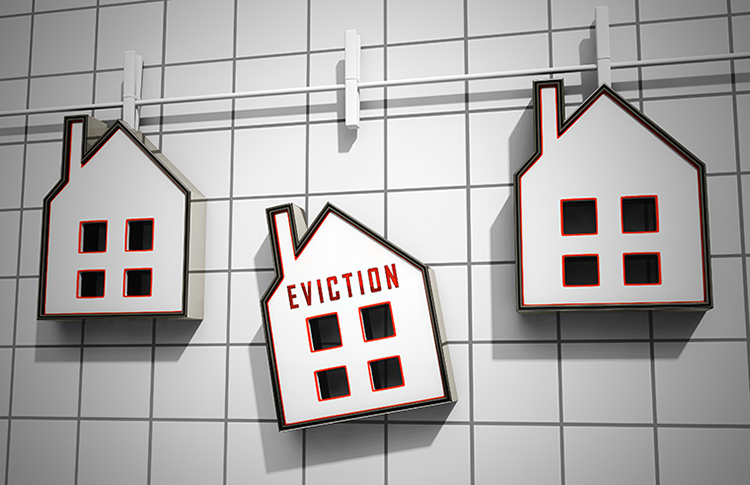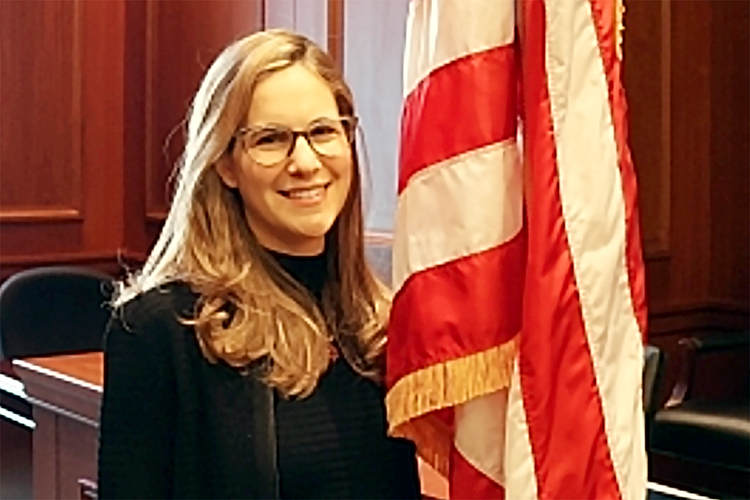New York extends eviction protections in wake of SCOTUS decision blocking federal ban

Image from Shutterstock.
New York has become the first state to extend its eviction moratorium since the U.S. Supreme Court blocked the federal ban on evictions during the COVID-19 pandemic late last month.
New York Gov. Kathy Hochul on Wednesday called legislators to an “extraordinary” session to extend the state’s moratorium, which had expired a day earlier. They passed a new agreement that extends protections against evictions and foreclosures in the state through Jan. 15, 2022, and gives officials more time to distribute federal rental assistance relief funds to renters and homeowners.
“Under my watch, here in the state of New York, we are not going to exacerbate what is already a crisis,” Hochul said, according to NPR. “We are not going to abandon our neighbors in need, especially since the state of New York failed in its responsibility to get the money that was allocated by Congress out to the people in need earlier this summer.”
The New York Times and Courthouse News Service also have coverage.
The Supreme Court on Aug. 26 ruled in favor of real estate groups that argued that the Centers for Disease Control and Prevention exceeded its authority by imposing the eviction moratorium during the COVID-19 pandemic. It had gone into effect Aug. 3 after Congress failed to extend an earlier version.
President Joe Biden called on cities and states, as well as local courts, to do what they can to prevent evictions in the wake of the decision. U.S. Attorney General Merrick Garland also wrote a letter to the legal community Monday calling on attorneys to volunteer to help millions of people who are behind on rent and could now be evicted in the next few months.
In a statement also released Monday, ABA President Reginald M. Turner Jr. said he supports efforts by Garland and others to address the approaching evictions crisis.
“With volunteer actions, individual lawyers and law students can make an enormous difference in ensuring access to justice and minimizing the impact of evictions on individuals, families and communities, as well as landlords, during this critical time,” Turner said.
The Supreme Court had earlier in August blocked a portion of New York’s statewide eviction moratorium that generally allowed tenants to pause an eviction by self-certifying that they were experiencing financial hardship as a result of the pandemic.
The provision “generally precludes a landlord from contesting that certification and denies the landlord a hearing,” according to its unsigned order. “This scheme violates the court’s long-standing teaching that ordinarily ‘no man can be a judge in his own case’ consistent with the due process clause.”
To conform with the ruling, New York legislators on Wednesday modified the state’s previous moratorium to allow landlords to contest tenants’ financial hardship claims in court. The New York Times reports that the measure includes other benefits for landlords, including providing them the ability to initiate eviction proceedings if a tenant is a nuisance or heavily damaged their property.
Joseph Strasburg, president of the Rent Stabilization Association, which represents about 25,000 landlords, told the New York Times that the group will also sue over the new moratorium if landlords are not easily able to challenge tenants’ hardship claims.
“We don’t want to litigate this,” Strasburg said. “It’s a waste of money, and it’s a waste of time when we should be focusing our energies on how to get the [rent relief] money out.”
The New York Times previously reported that only about $5.1 billion of the $46.5 billion in federal funding meant for people who are behind in rent because of the pandemic and its related economic hardship had been distributed by the end of July.
Write a letter to the editor, share a story tip or update, or report an error.


